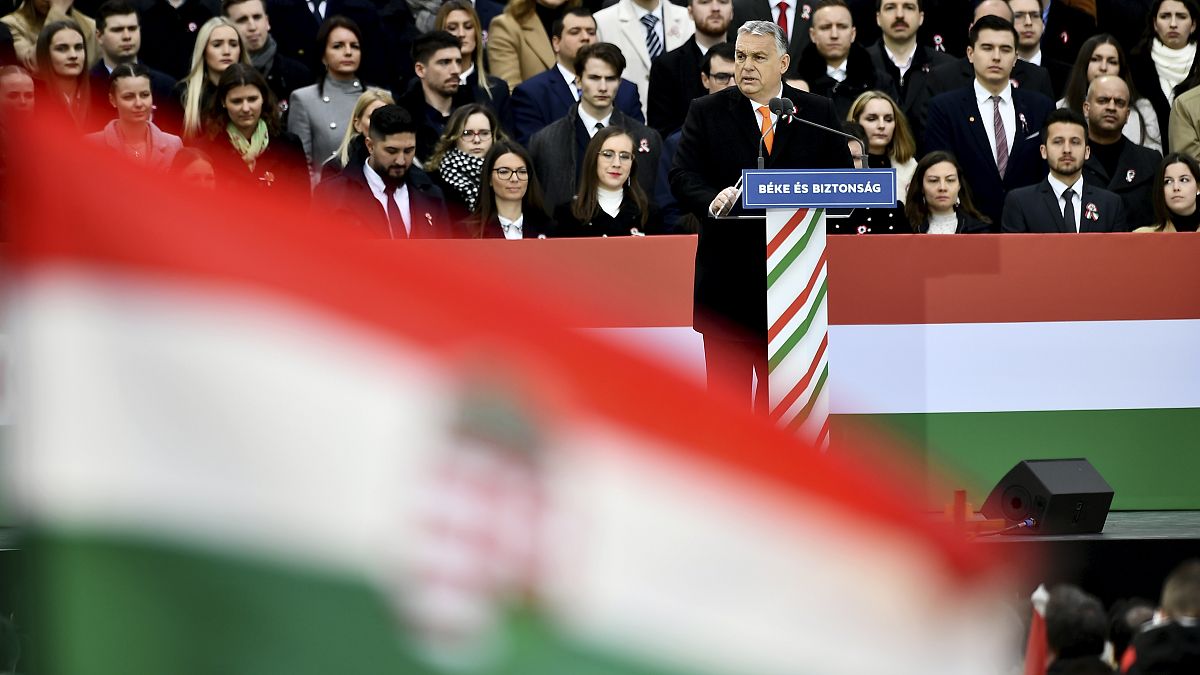"Fidesz slowly stripped the guarantees for fair elections out of the system – a death by a thousand cuts," argues Michael Meyer-Resende, speaking about this Sunday's election in Hungary.
Come next week and the European Union may have another crisis on its hands. It won´t be about Russia, at least not directly.
This new crisis will be triggered by the results of the Hungarian elections to be held on Sunday.
Again, people will say “we could not know”, but as with Russia, Orbán never hid his many moves to undermine Hungarian democracy.
The latest polls for Hungary’s general elections indicate that it will be a tight race between Viktor Orbán’s Fidesz party and the coalition of six opposition parties headed by Péter Márki-Zay.
If the electoral bodies come up with results that do not reflect the actual voting, the result is too close to call or either candidate refuses to accept the outcome of the vote, the aftermath of the elections could become highly controversial.
Are these far-fetched scenarios? Not at all. In fact, since 2014 elections in Hungary have been flawed.
Back then, the Organization for Security and Co-operation in Europe (OSCE), a body tasked by all European governments to monitor elections, found that legal changes “negatively affected the electoral process, including the removal of important checks and balances.”
It also monitored TV stations and found that “three out of five monitored television stations displayed a significant bias towards Fidesz by covering nearly all of its campaign in a positive tone while more than half the coverage of the opposition alliance was in a negative tone”.
The OSCE offered many recommendations to improve the electoral process in Hungary. But things got worse. The mission in 2018 noted that the “ubiquitous overlap between government information and ruling coalition campaigns, and other abuses of administrative resources, blurred the line between state and party, at odds with OSCE commitments”.
The current elections are no different. Nothing has improved, but much has gotten worse. For example, the government is using email addresses gathered to offer citizens updates on COVID-19 to send them Fidesz propaganda instead.
And do you know how the state channel TV 2 covered the unveiling of the opposition’s manifesto? It covered the news in 29 seconds, did not provide any information about the manifesto and titled the item ”Event unveiling the opposition platform ends in failure”, according to Mertek, a media monitoring organisation.
I do not want to stretch readers’ patience by listing the vast amount of evidence pointing to the many shortcomings affecting all areas of government, the judiciary, the administration and the media.
Numerous reports have been published to highlight them.
The point is: Fidesz slowly stripped the guarantees for fair elections out of the system – a death by a thousand cuts. When confronted with the facts, Orbán’s party does not respond. Instead, they dwell on George Soros and anti-liberal conspiracy theories.
The dismantling of Hungarian democracy has created insurmountable problems for the opposition. An option would have been to boycott such a flawed process, but then there would be no chance to end the semi-authoritarian Fidesz rule. Instead, the opposition teamed up as a coalition of parties from across the political spectrum. It was the only way to have a small chance in an electoral system and political environment tailor-made to benefit Fidesz.
Beyond these flaws, could something go wrong on election day? It certainly could. Excluding such a scenario would be as unrealistic as claiming that Putin would not invade Ukraine when he had already invaded parts of the country in 2014. The warning signs are all over.
The non-governmental group Unhack Democracy highlighted election day irregularities in the 2018 elections. The OSCE this time send a full-fledged observer mission with more than 200 members, only the second time it does so inside the EU.
What should the EU and its member states do if the process ends in acrimony? First, they should not rush to congratulate a declared winner, but rather wait for the statements that election observers typically release a day or two after elections. Since the OSCE is an organisation based on Europe-wide commitments accepted by all EU member states, the outcome of its assessment mission will be particularly important.
Second, the EU should not rush to propose fixes that may not be appropriate without properly judging the situation (some examples would be a recount, a repeat, etc.). Third, in the event of an uncertain result, the question of legal remedies is essential. It will come as no surprise that Fidesz has narrowed the legal grounds to challenge the election. However, if appeals do reach the Courts, their judgments should be analysed keeping in mind that these have been staffed by Fidesz.
Finally, even if the opposition loses and acknowledges a defeat, nobody should conclude that there is no problem with Hungarian elections or that a fourth government dominated by Fidesz is democratic. Reasons: see above.
The Russian assault on Ukraine has clearly shown the dangers of autocracy. It is high time for the EU to clean up its act and make sure that member states stay in the camp of democracy. The EU has many instruments to address the situation in Hungary. It should not pay out COVID recovery funds and apply the rule of law conditionality mechanism if there is no change.
Michael Meyer-Resende is the executive director at Democracy Reporting International.
